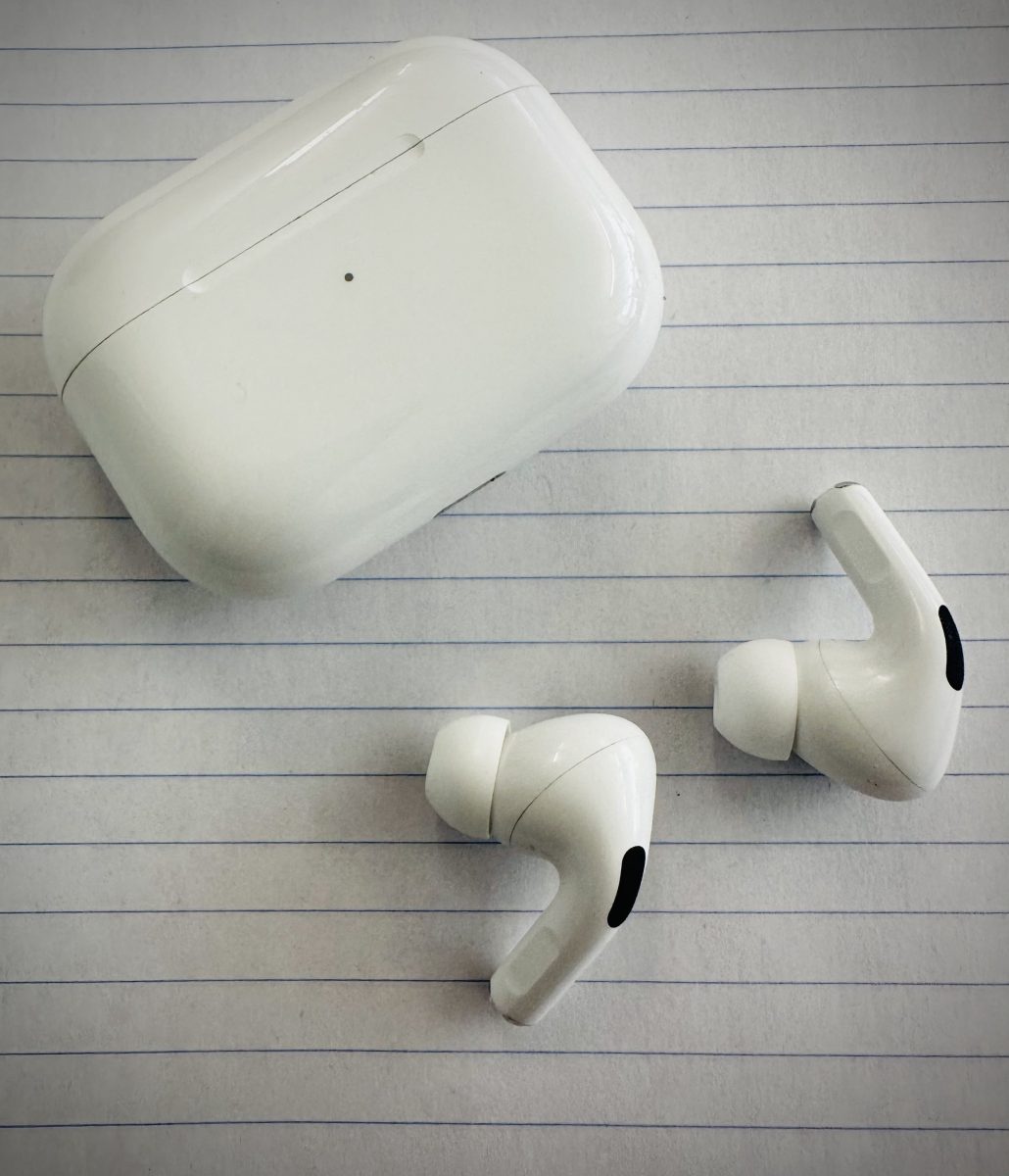Ever since their launch in 2016, AirPods have skyrocketed in popularity, especially with students. This remains true at FHS, where almost every student owns AirPods or a similar device. They have become a perfect source of entertainment through a long school day. However, the rise of these devices has also prompted concerns from teachers and administrators, who say they are too much of a distraction.
One question that arises is when is the right and wrong time to use AirPods. Senior Kareem Larhnajaf said, “I don’t listen to music in class unless I don’t have any work…Sometimes it can help you focus – if it’s an easy class.” This distinction is important to make, because if work requires a higher level of concentration, it may not be efficient to have the added distraction of music. However, if it’s in an easy class or one that requires less detailed thought, the music may actually help you work more efficiently by further stimulating your mind.
AirPods may also have a negative impact on a student’s overall education. Larhnajaf believes so, saying, “[They are listening to music], but then they look beside them and they have five different [unfinished] assignments–are they gonna get it done in 90 minutes?” When students fall behind on multiple assignments and don’t have a plan to complete them, they may receive a poor grade, and not be properly prepared for tests. Junior Alan Martinez feels that listening to music in class is not an issue because “my classes are boring.” Perhaps some classes just aren’t entertaining enough for certain people, but that fails to account for the academic impact that not paying attention has.
Potential distractions aside, AirPods do have positive effects, as chemistry teacher Jacob Preli explained, “There are absolutely studies that music enhances brain flow, but it is not Kanye West, it’s specific tones. A lot of classical music, old-school gaming [music], those tones will actually help you solve problems.” This is important to keep in mind because different types of music do have different effects. Another connection Preli made is, “Music, most people will turn it down to concentrate better [without an added distraction].” This does provide evidence to the contrary, that humans may focus better without music.
Overall there are conflicting thoughts on the subject, and there isn’t a clear solution. Some people benefit from listening to music, and some may not. Unfortunately, some of it also comes down to what type of music is being listened to, and it’s difficult to draw that line. If AirPods were prohibited in schools it may help some people concentrate better and have a more fulfilling education; however, it may needlessly punish students who can manage them and benefit from music while they work.





![Senior and Foreign Exchange Student, Alexandria [Sasha] Pavalache, poses happily for the camera.](https://fhsfalconer.com/wp-content/uploads/2025/11/HSWSvqEqu0Spt3QOytxhKNyg7oFrQjcHePZcAOeK-e1763132685150-800x1200.jpg)


